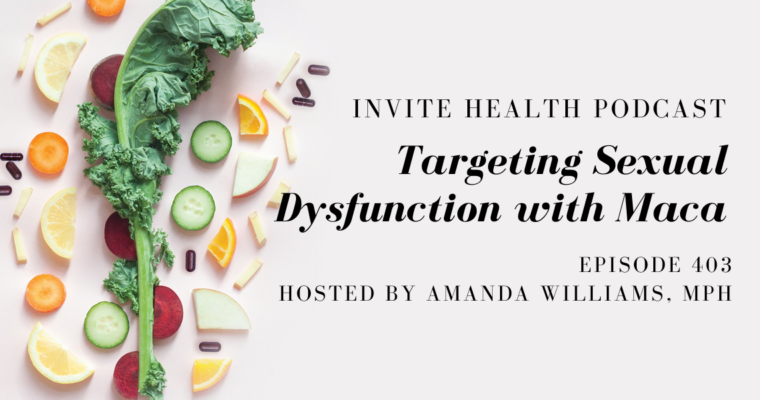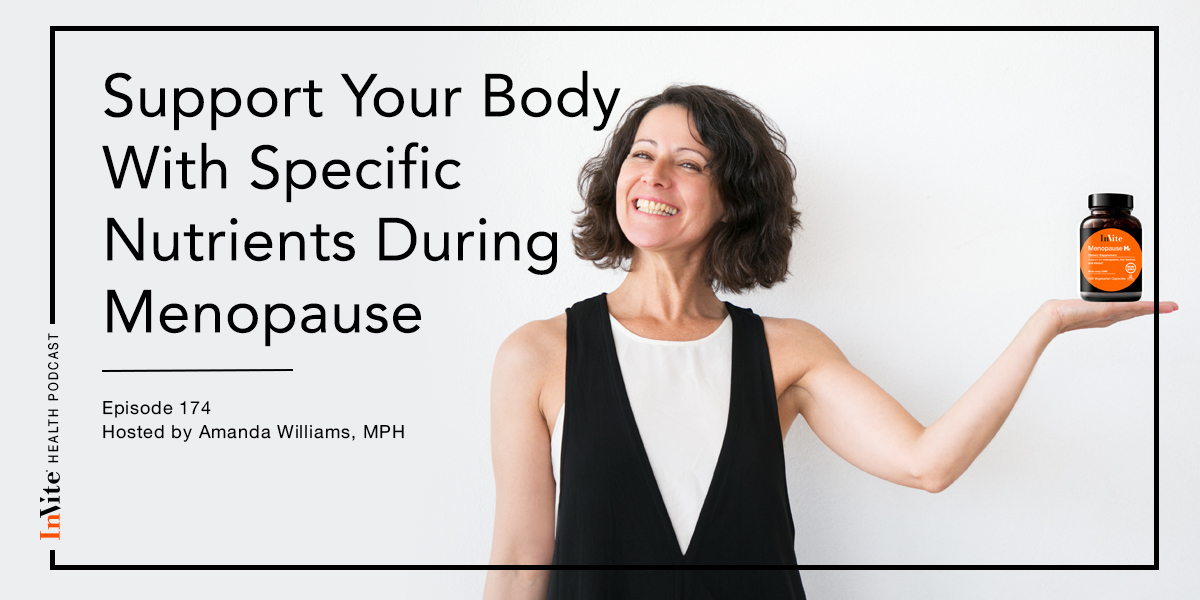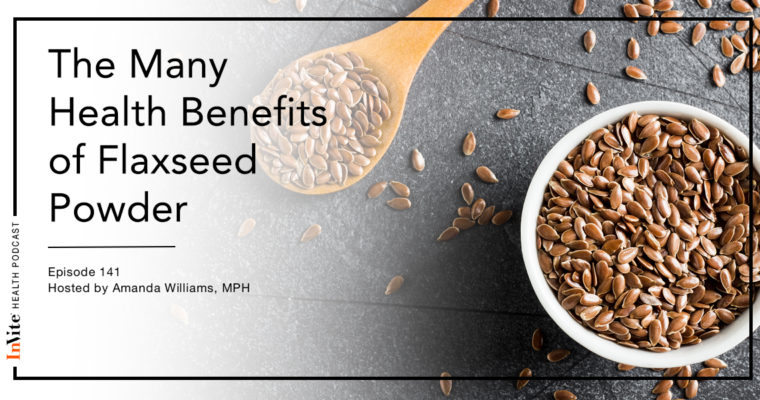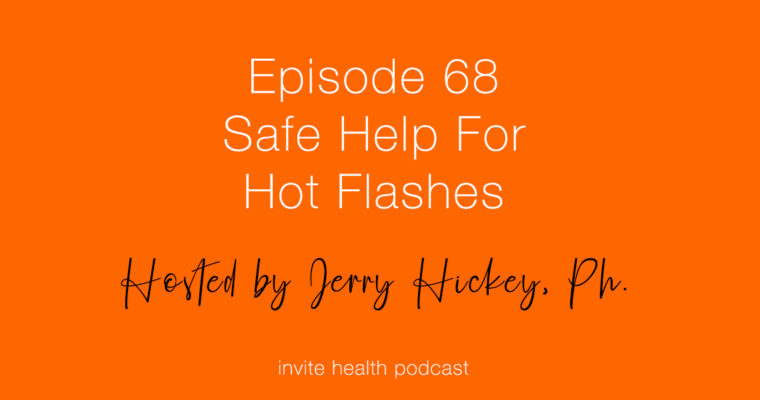Invite Health Podcast, Episode hosted by Amanda Williams, MPH
Subscribe Today!
The power of hormones is so critical to our well-being and how we feel every day. When women start to experience perimenopause and are going through menopause, there can be so many factors that can disrupt your normal sense of well-being. Maybe your quality of sleep has gone down. Maybe your overall energy levels seem really depleted. Maybe you used to have that giddy up and go and now you don’t. Perhaps you’re starting to gain weight and finding that your normal diet and exercise routine isn’t working the way it did maybe five or 10 years ago. This is why it’s so important to understand your hormones and what they’re actually doing. And as you go through that change of life, understanding what you can be doing to support your overall health. Today, I want to talk about female hormonal fluctuation in detail and why it is that women can experience certain symptoms and other women don’t experience any symptoms. So much of it has to come down to what you actually know about what’s going on internally, within your endocrine system.
WHY ARE HORMONES IMPORTANT?
When we look at our hormones, we have to have kind of a road map to understand how we’re feeling. I always say that if I had known the things I know now many years ago, I would be telling everyone, I would be screaming it from the rooftops! I would be saying that everyone should have their hormone levels tested when they’re in their 20s, when you are feeling at your best, when you feel super energetic and your most youthful. Once you start hitting your late 30s, into your 40s, 50s and beyond, is when women can really start to have so many of these issues that can arise. Oftentimes we just chalk it up to getting older or stress from work and life, but we really need to understand what is going on with our hormones. Hormones are chemical messengers that are sent out throughout the body. If the messages are being disrupted, for whatever reason, then of course we are not going to be feeling the way that we should be.
Studies Show D-Mannose Helps Protect Against Urinary Tract Infections. Learn More! >>
I’ve talked to so many women who experience a vast variety of different symptoms going through perimenopause, as well as menopause. For some women, maybe it’s really pronounced. They experience hot flashes where it wakes them up in the middle of the night and they feel like their entire bed is sopping and they’re so uncomfortable. Maybe you get hot flashes throughout the day. Maybe you’re at work and all of a sudden you get hit with this hot flash, and it may come and go very fast. For others, it may linger longer. For some women, they don’t experience hot flashes, but maybe they can’t sleep. They feel like they’re tired, they go to sleep and the next thing they know, they’re up 2 hours later and they cannot seem to fall asleep. We never look at the root cause, which can always come back to hormones. As we progress throughout our lives, we should really focus on what our hormones are doing because it’s that key playbook to our overall wellness. We oftentimes so quickly dismiss the role of hormones and what we should be doing to optimize hormonal balance in our bodies.
USING BIOIDENTICAL HORMONES
For some women, maybe they will go see a physician and they’ll look at doing bioidentical hormones. Bioidentical hormones mimic your actual hormones. They have the same structure and function. I am certainly an advocate of bioidentical hormones, some people are not. It’s really a personal issue. I think that if you’re going to the right physician, you’re having your hormone levels tested on a regular basis and you’re receiving the appropriate amount of hormone replacement in that bioidentical form, oftentimes, it can bring about such peace to your overall life.

NATURAL WAYS TO SUPPORT THE BODY DURING MENOPAUSE
There are many different natural things that can be supportive to so many of the issues that women experience, such as disrupted sleep, hot flashes and low energy. We want to look at nutrients that have been shown to be optimal when creating this homeostasis or balance in the system, to allow those chemical messengers to do more of what they should be doing. We always want to make sure that we’re not building up any bad hormonal byproducts as estrogen breaks down in the body. We don’t want to have bad estrogen floating around, we want to have good estrogen.
This is why we look at things like Indole-3-carbinol, for example. Indole-3-Carbinol with DIM is something that is derived from cruciferous vegetables. It’s very beneficial at helping the body with the removal of those harmful estrogen byproducts in both men and women. It has been studied extensively in relation to hormone-driven cancers, such as prostate cancer and breast cancer. From these studies, we know that Indole-3-carbinol is very supportive in helping to create that homeostasis of those hormones.†
We can look at things like Black Cohosh that has also been shown to help create more hormonal balance in women who incorporate it into their routine. We’re having all this vaso action going on in the body that’s driving up all of those hot flashes. Black cohosh can help to try to tamper that down. This is really a nice choice for some women.†
We can look at Isoflavones, which is another thing that has been shown to be very beneficial at the proper activation to the support of good estrogen in the body. Harvard University’s School of Public Health looked through studies done in China and Japan and showed that the intake of isoflavones in the women studied actually led to a greater reduction in the development of things such as breast cancer and endometrial cancer. We know that those isoflavones are doing a lot in terms of the proper estrogen receptor balance in the body.†
Things like L-Theanine can help to support proper sleep cycles. L-Theanine helps the body release normal levels of GABA, our calming neurotransmitter. Some women will find that utilizing L-Theanine in the evening before bed may help them with a more restful night of sleep. Other women may find that a melatonin addition in the evening is beneficial, or perhaps 5-HTP will also be beneficial.†
A shift in female sex hormones can put the body in distress and disrupt other hormones such as cortisol and insulin, impacting our mitochondrial energy production. We want to make sure that we are supporting adrenal glands with nutrients such as Rhodiola, which will not only help in terms of playing this role as an adaptogenic power herb to help better balance your cortisol, but at the same time, it helps that mitochondrial generation of energy.†
How To Finally Achieve Successful Weight Loss. Learn More! >>
We have to be considerate of all of these things and look at what we are doing right and what we are doing wrong. Questions include:
- Are we incorporating the right foods into our diet?
- Are we having high antioxidant foods to help tamper down oxidative stress that those disrupted hormonal signals can be creating?
- Are we creating proper balance?
- Are we incorporating things like Flaxseed? Flaxseed can be very beneficial and plays a role as a phytoestrogen, so it kind of mimics the actions of estrogen in the body without actually altering hormone levels.†
One thing that is so commonly overlooked is getting your hormone levels tested. Without knowing where your hormone levels are, you don’t know what you’re dealing with. Once you see those hormone levels, it can give you so much insight as to why you’re feeling the way you are and how to best approach those hormonal levels. It’s not just looking at total estrogen. You have to look at estradiol, which is the primary circulating estrogen in both men and women. We have to look at progesterone. We have to look at free and total testosterone. This can make a huge difference in terms of energy levels, muscle mass and maintaining bone density. These are the things we need to be able to recognize to see what is actually happening with those hormones.
Thank you for tuning in to the Invite Health Podcast. You can find all of our episodes for free wherever you listen to podcasts or by visiting www.invitehealth.com/podcast. Make sure you subscribe and leave us a review! Follow us on Facebook, Twitter and Instagram at Invite Health today. We’ll see you next time on another episode of the Invite Health Podcast.
Questions about your hormones as you go through menopause? Leave Amanda Williams a comment below to discuss!









